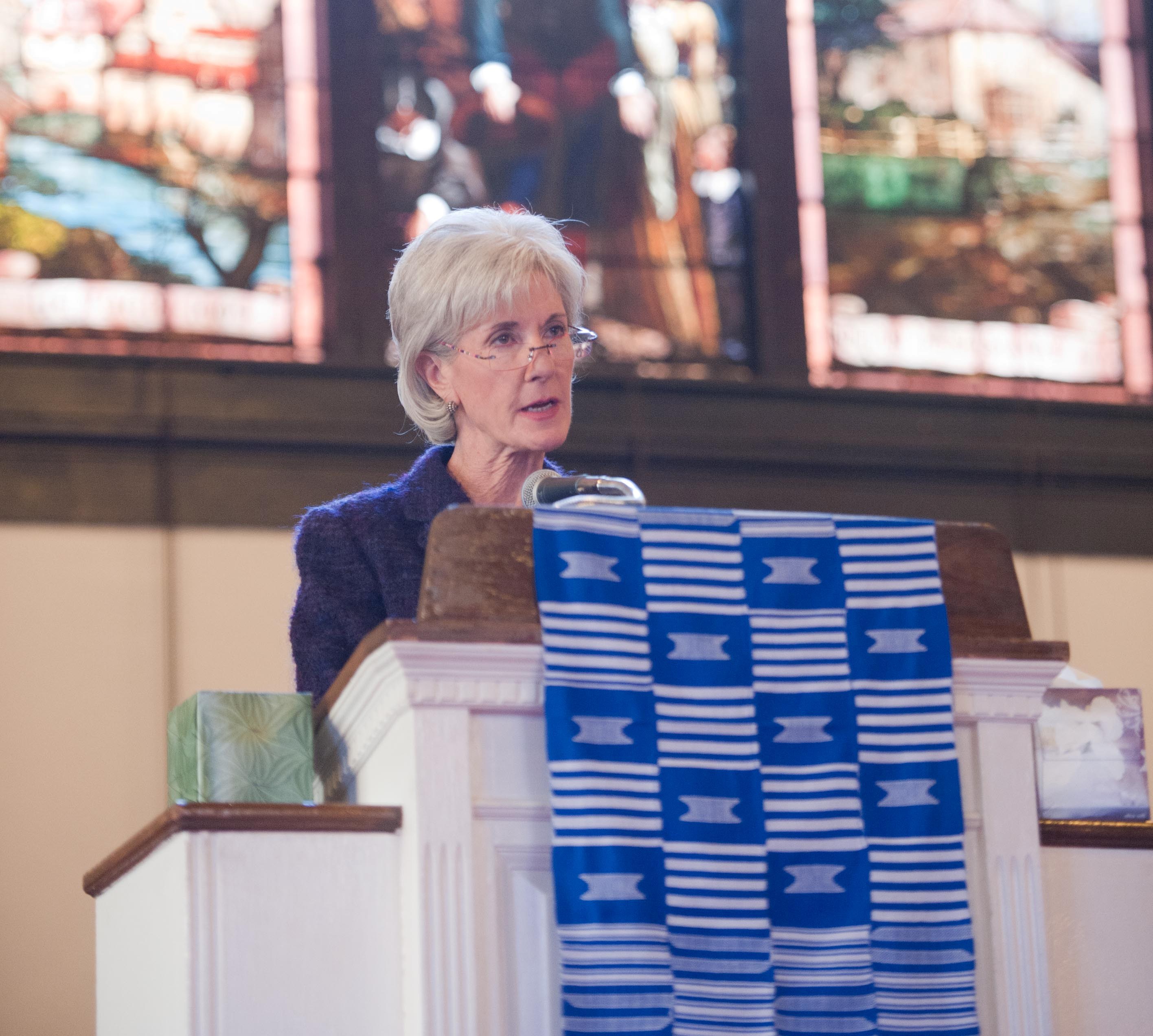
“Health disparities carry a big cost for our communities and our nation,” she said. “It’s hard to concentrate on school when you’re sick. When it’s not safe for children to play or there are no facilities for them to play on, it’s hard to get exercise. When you have to walk two miles to get fresh produce but a bag of chips is right around the corner at the local store, it’s hard to eat healthy.”
Sebelius described the passage of the Affordable Care Act as “the most important legislation to reduce health disparities since Medicare.” The legislation will ensure that all Americans have affordable and accessible health care, will make it easier for people to get preventive screenings for diseases, and will protect people from being denied coverage because of a chronic disease or disability.
In addition, investments from the Recovery Act will help to train and support 16,000 new primary care providers by 2015, with a special focus on doctors and nurses in underserved communities.
Listening intently to the Secretary’s remarks were not only Howard School of Divinity students, but also students from the schools of health sciences and medicine. For me, seeing those young women and men in their white coats in Rankin Chapel illustrated the important connection that faith and health leaders have within their communities. The Secretary’s speech highlighted how those linkages present tremendous opportunities for underserved communities to receive more holistic and comprehensive health care.
Closing her remarks with a quote from Dr. King, “change does not roll in on the wheels of inevitability, but comes through continuous struggle,” Sebelius charged the Howard University students, staff, and faculty to keep moving forward for an equitable community.
Acacia Bamberg Salatti is the Deputy Director of the Center for Faith-based and Neighborhood Partnerships (The Partnership Center) at the U.S. Department of Health and Human Services.


